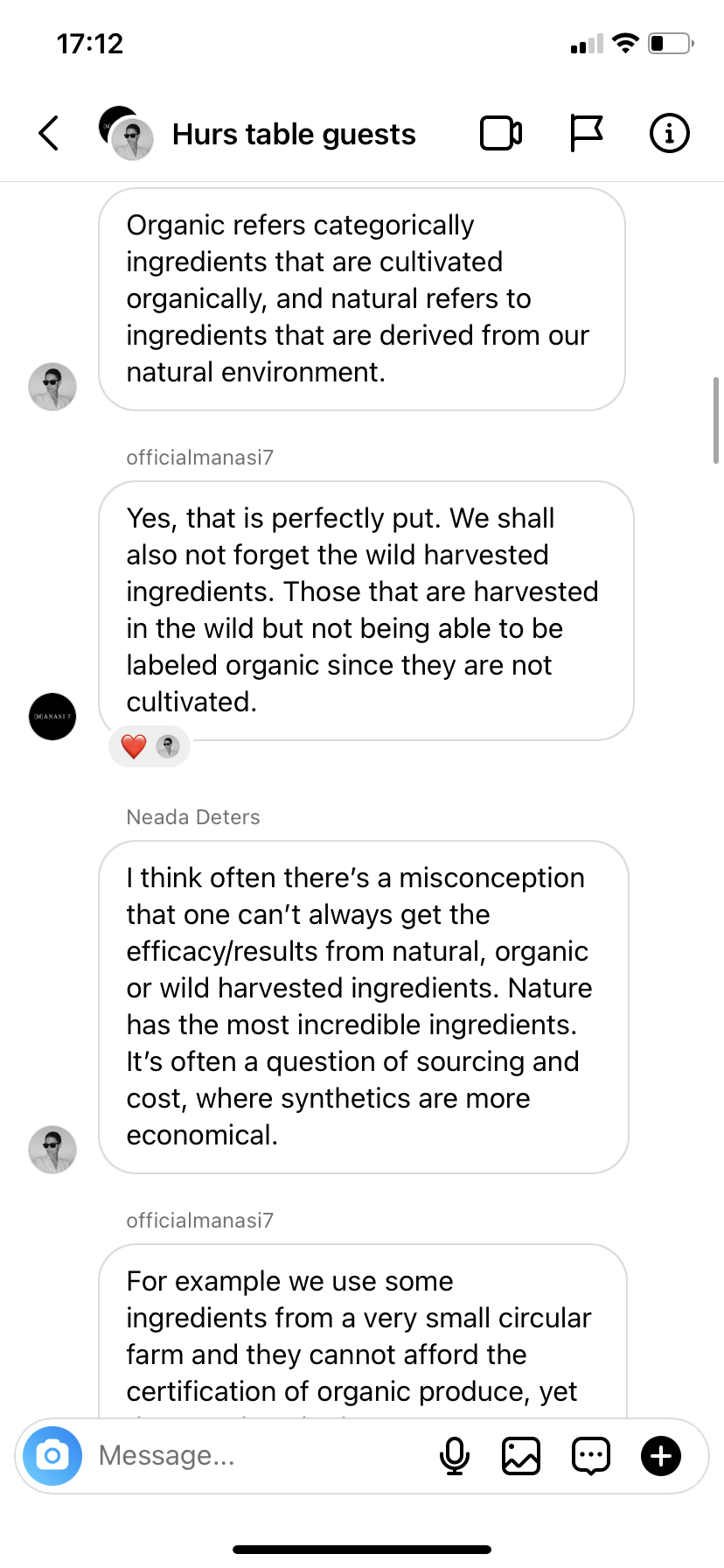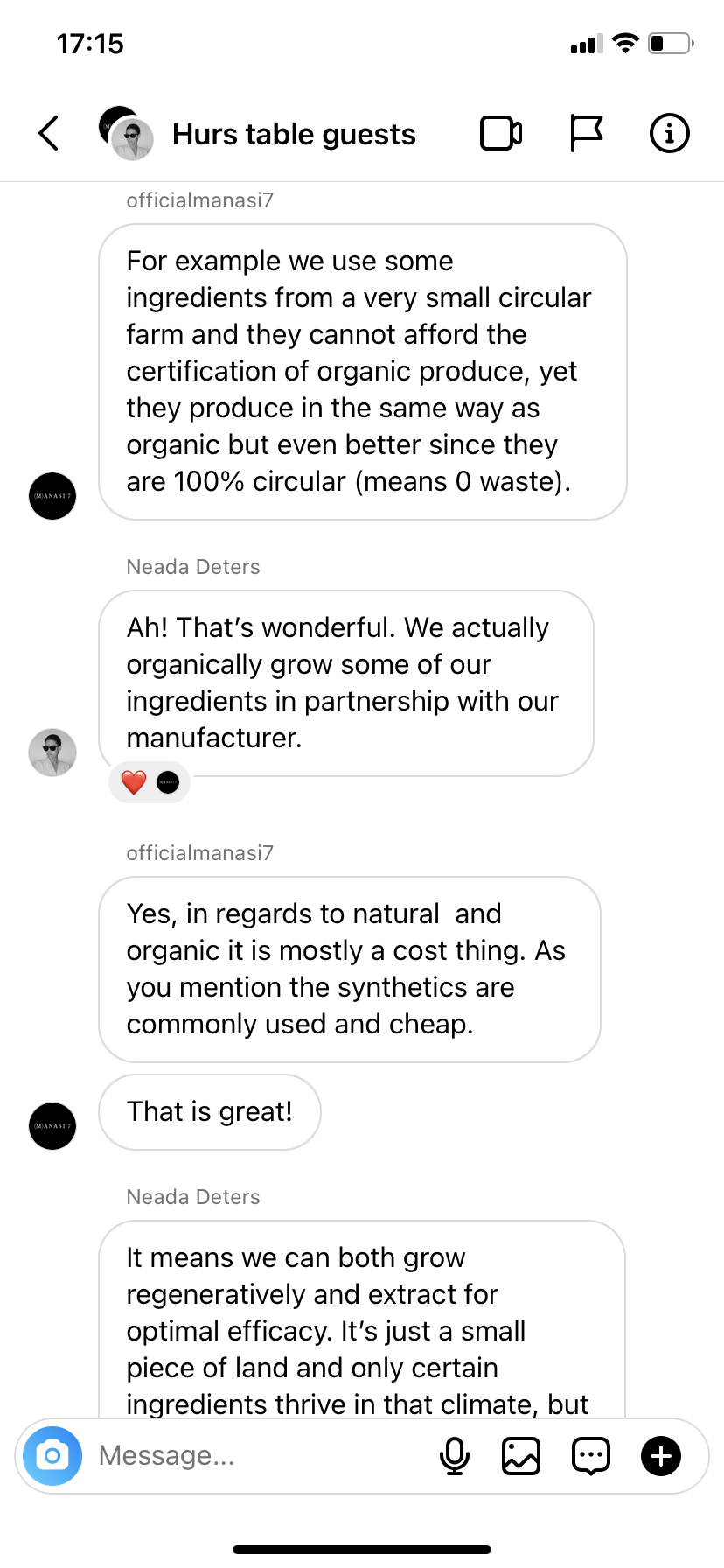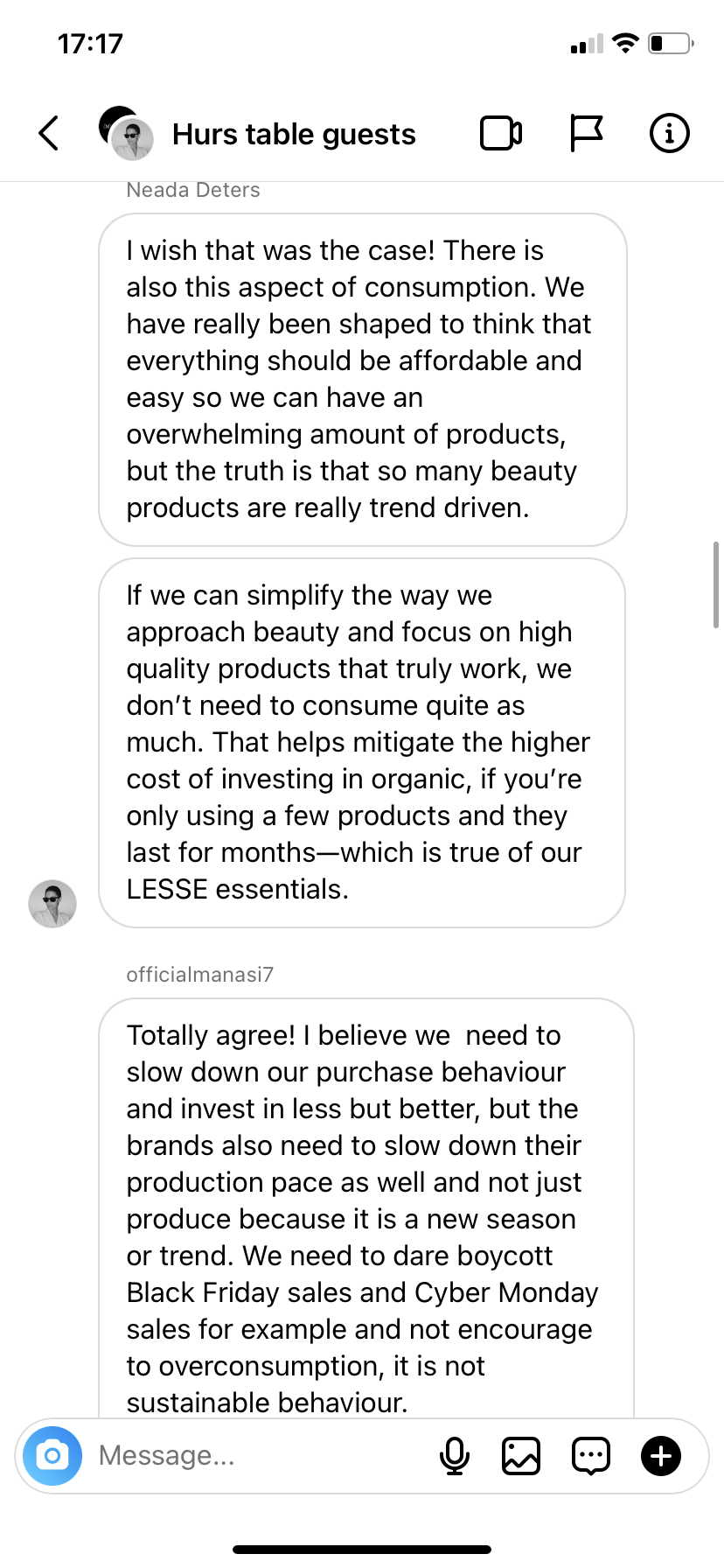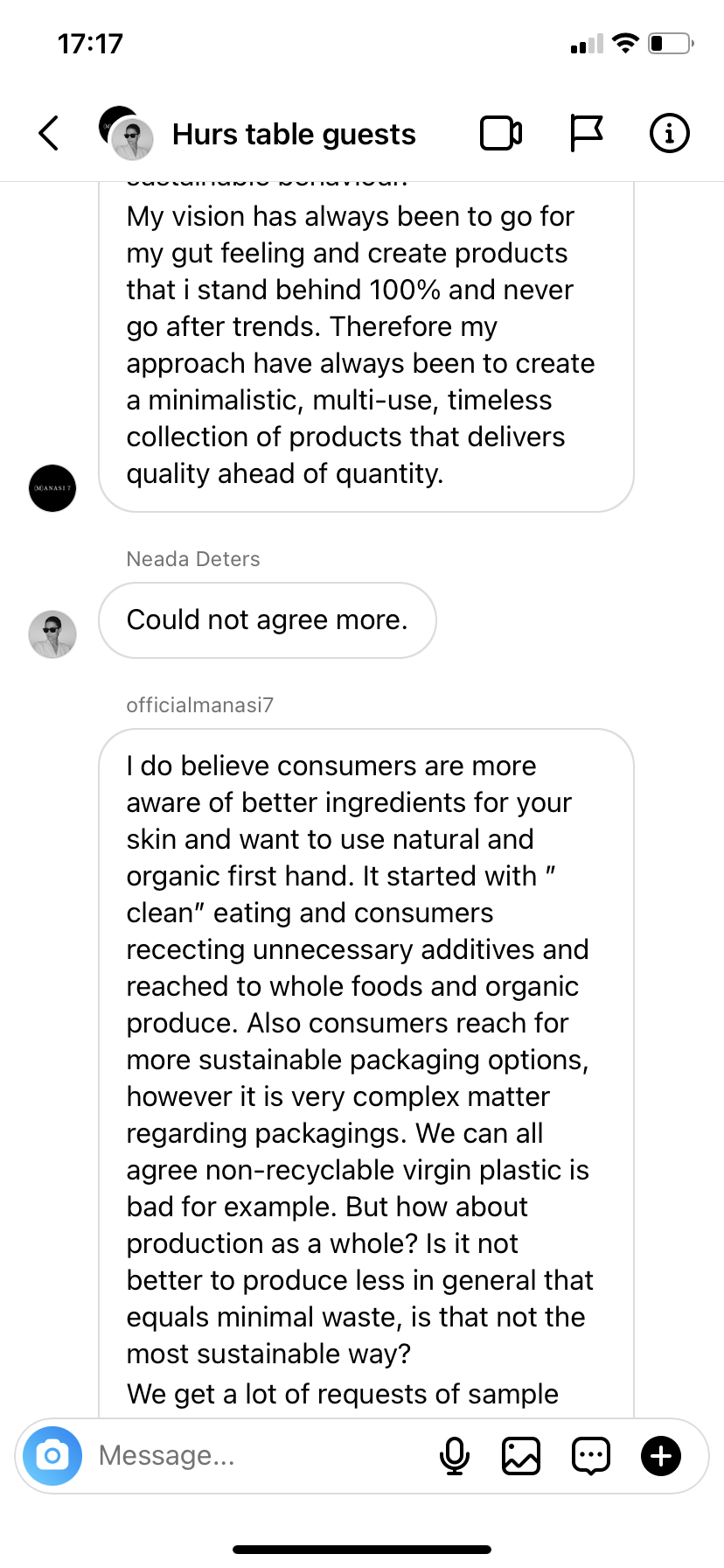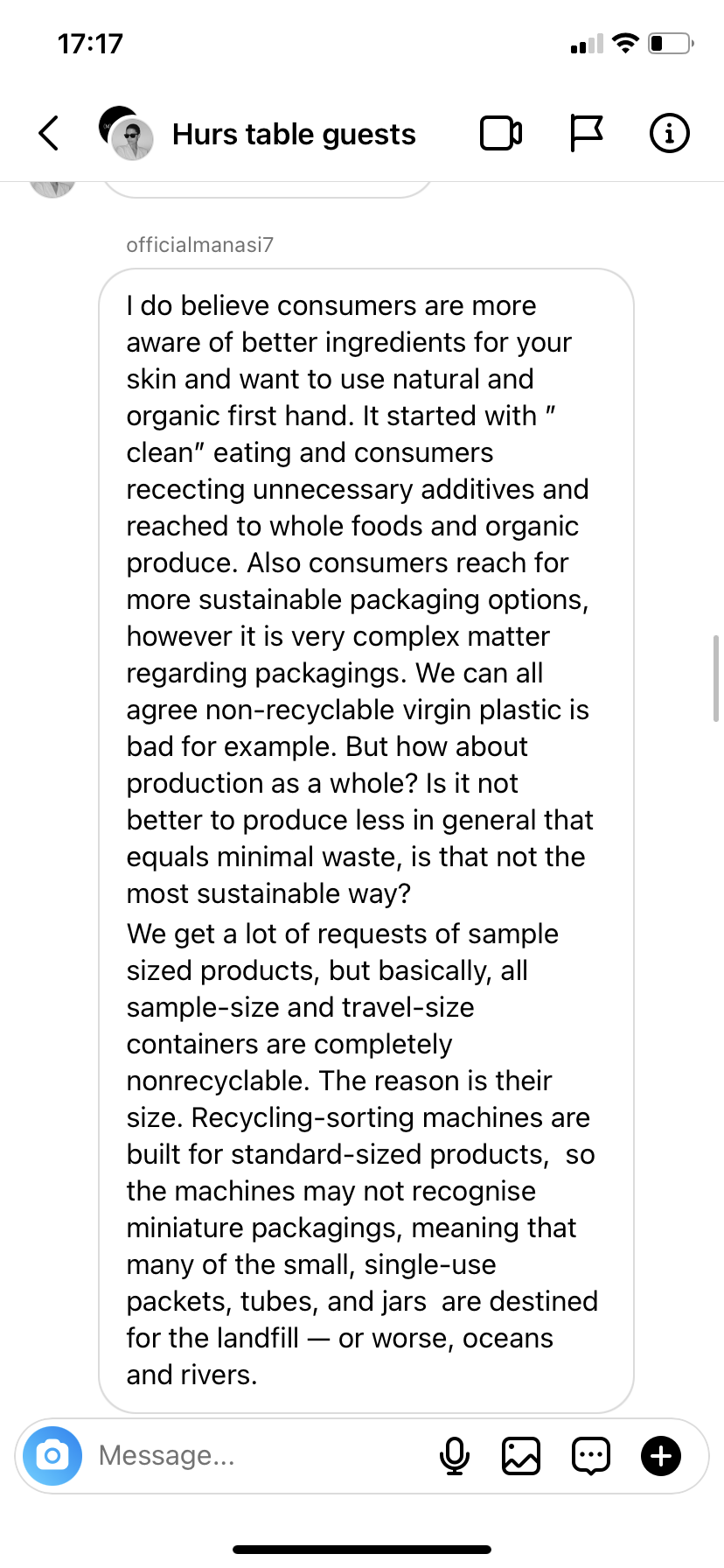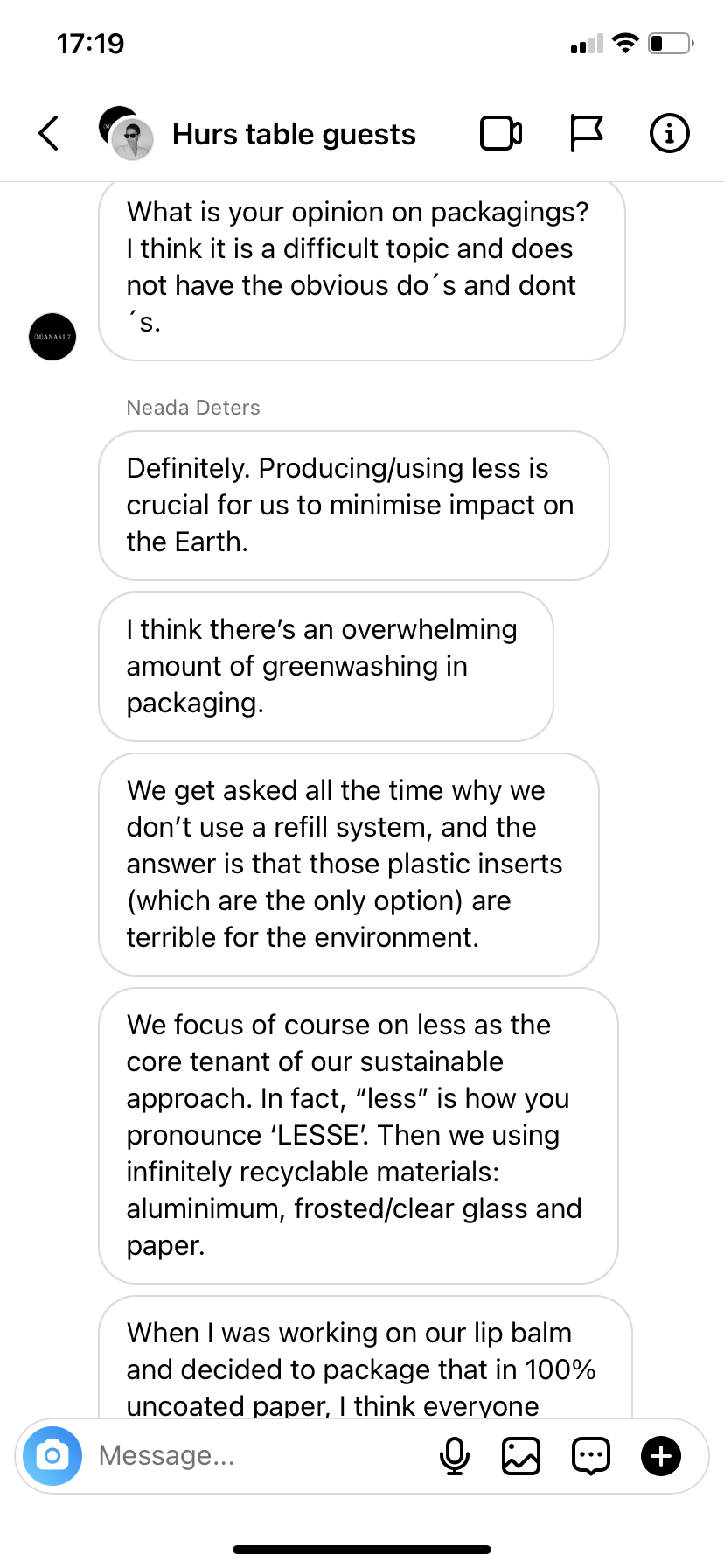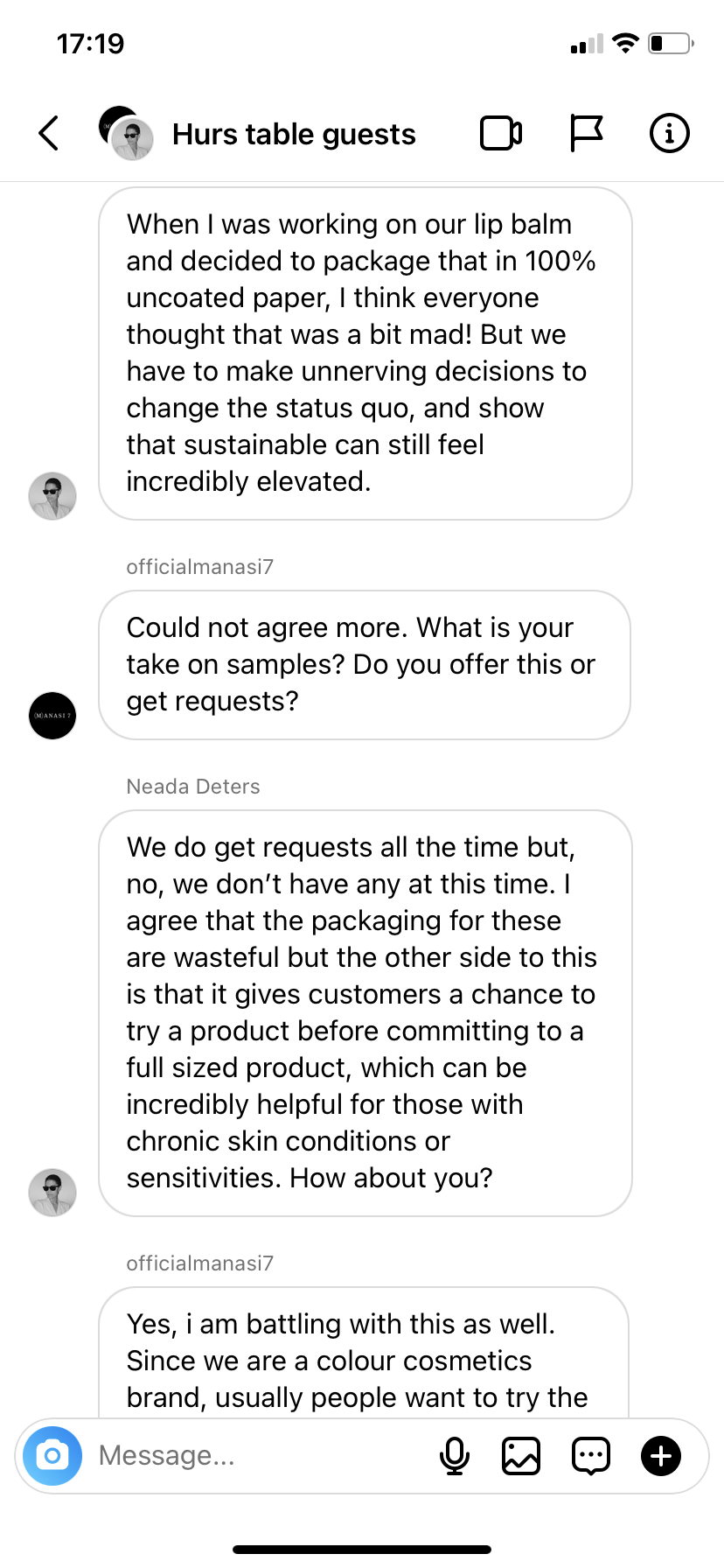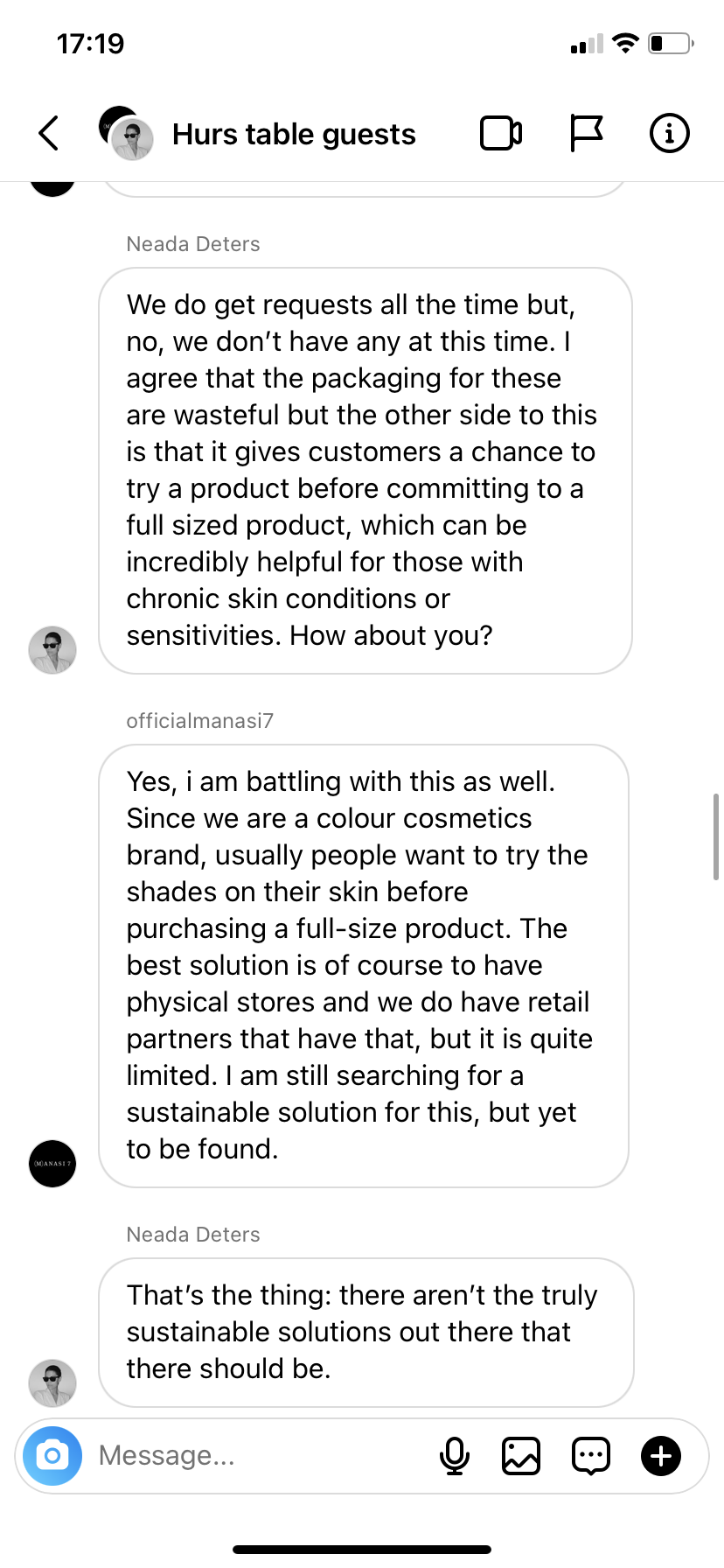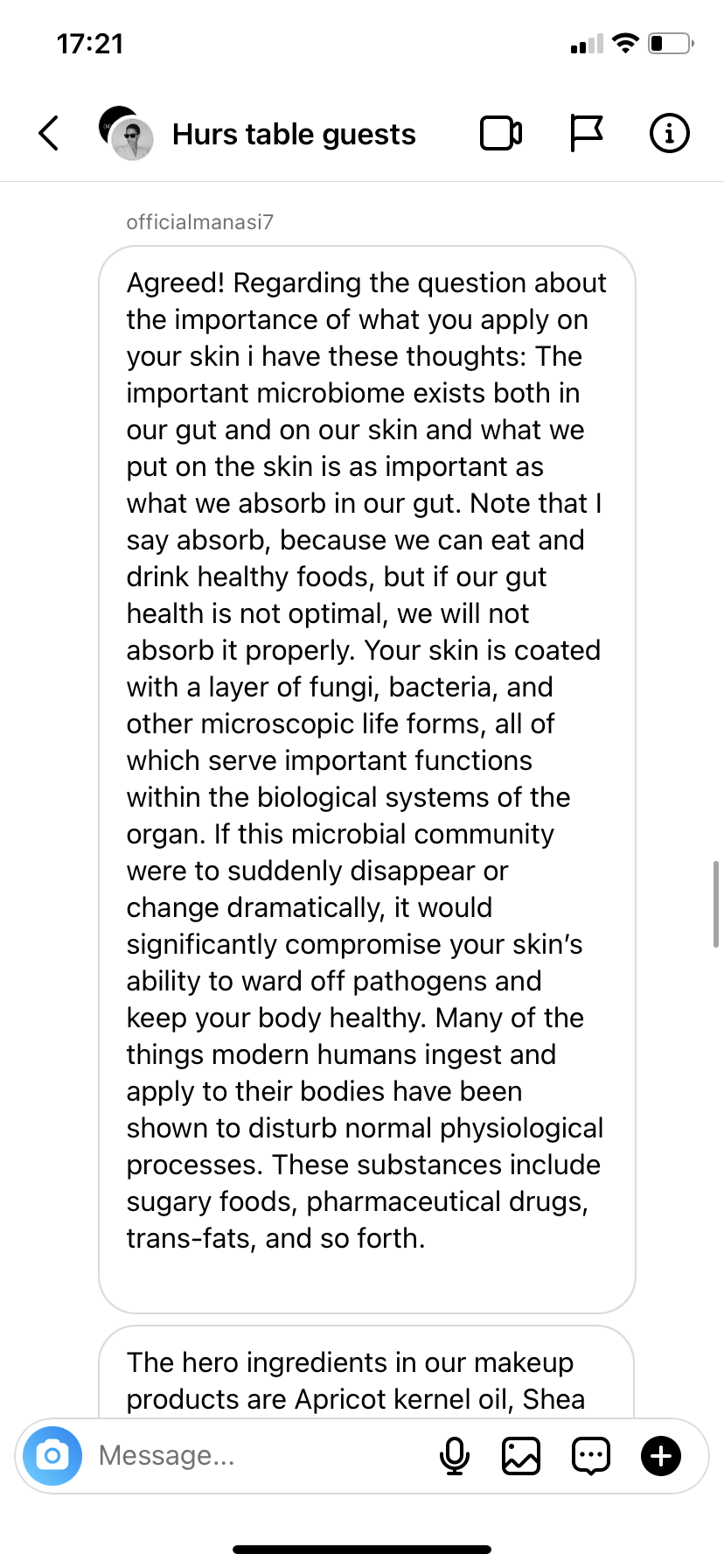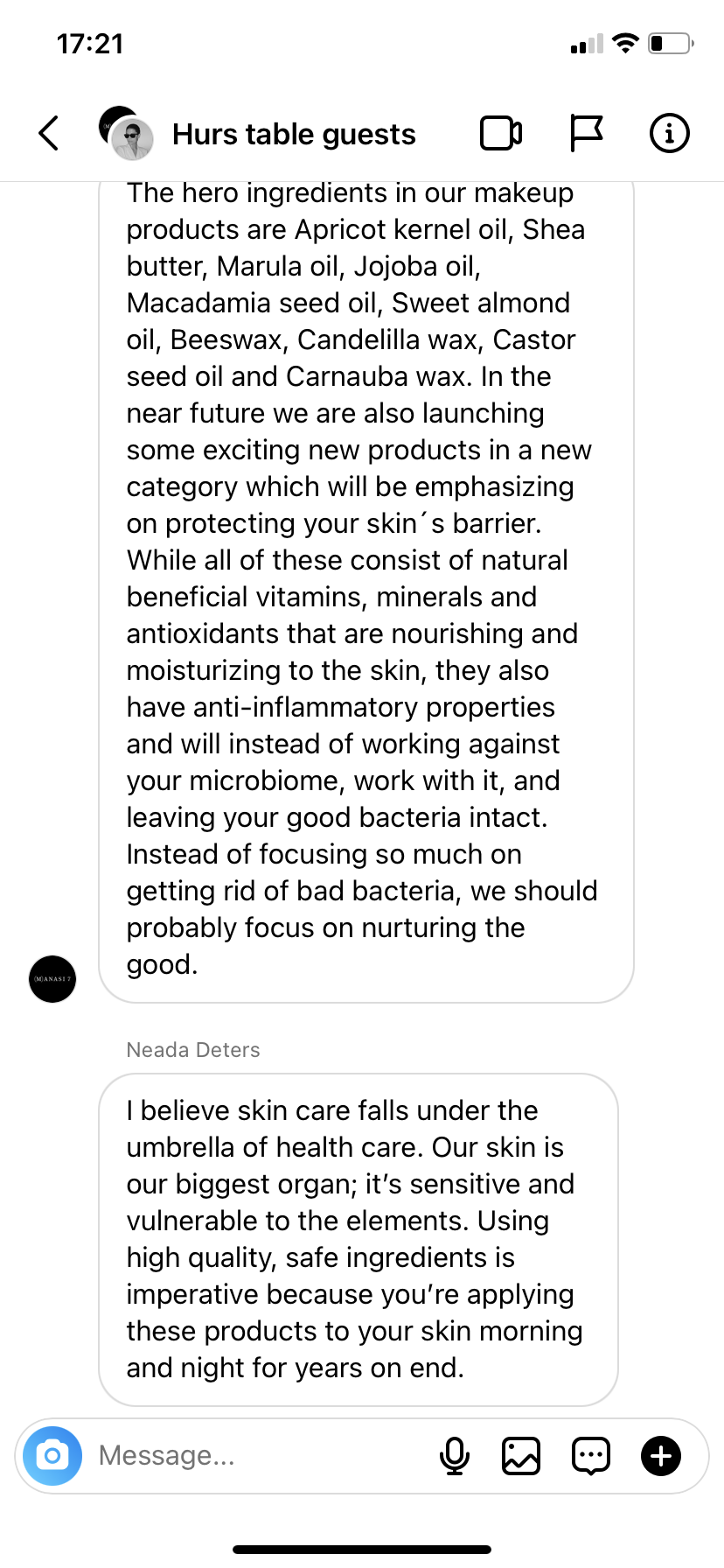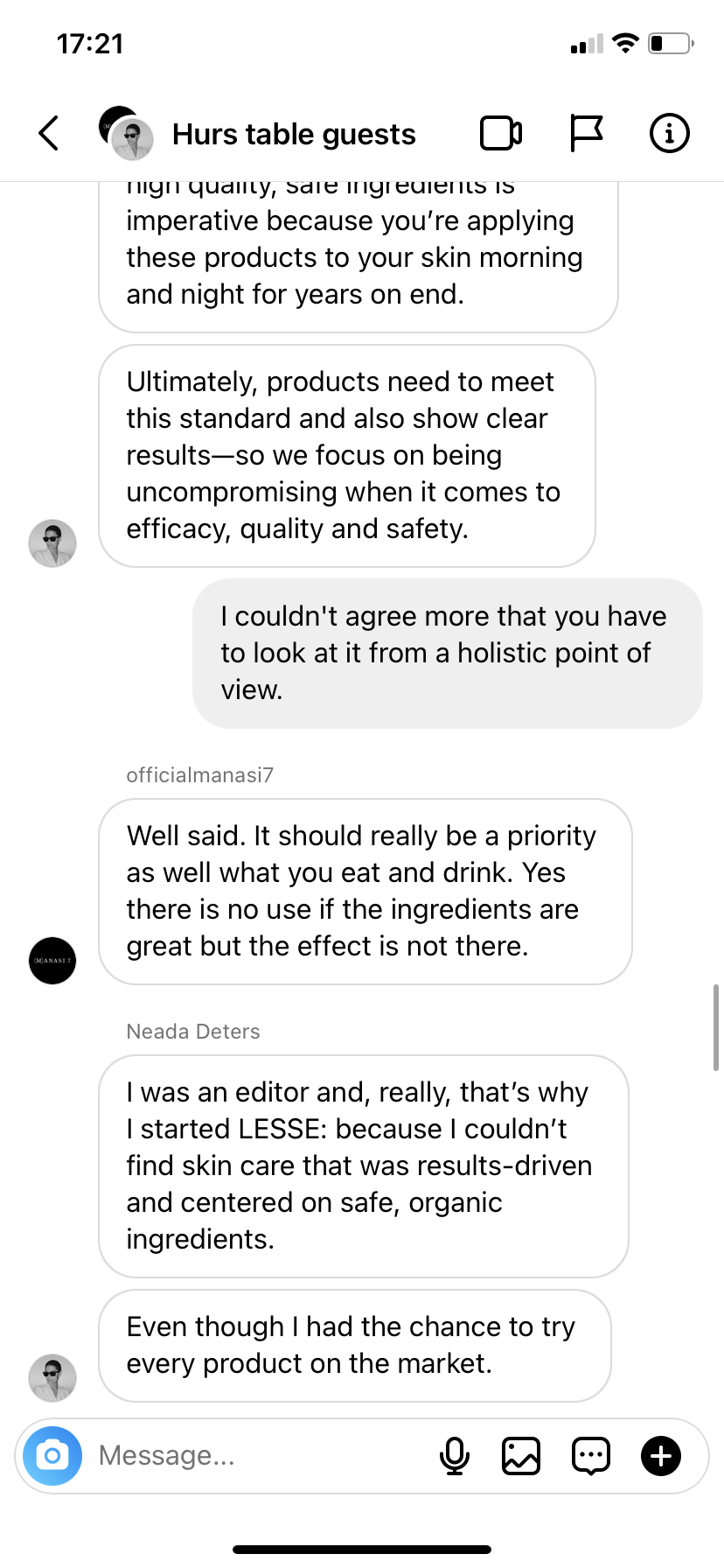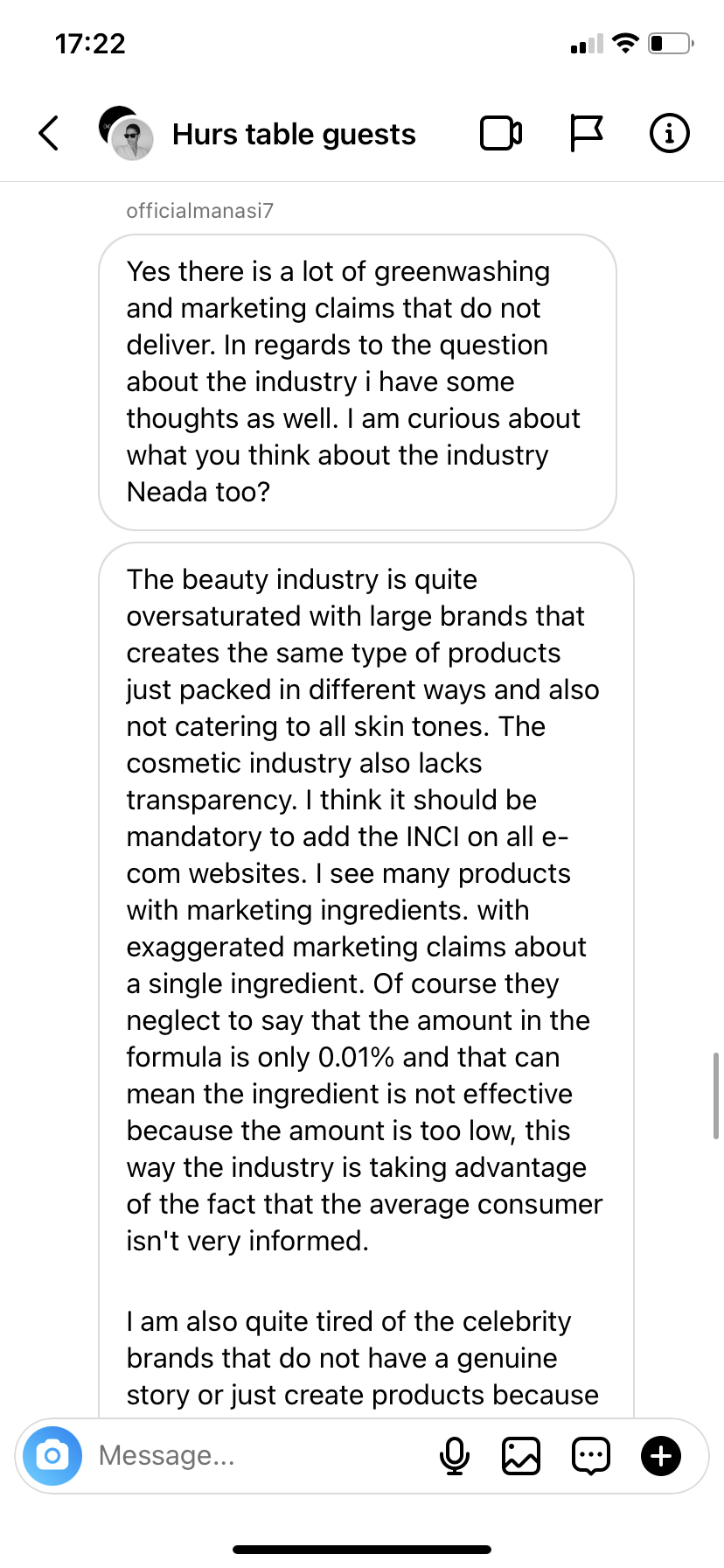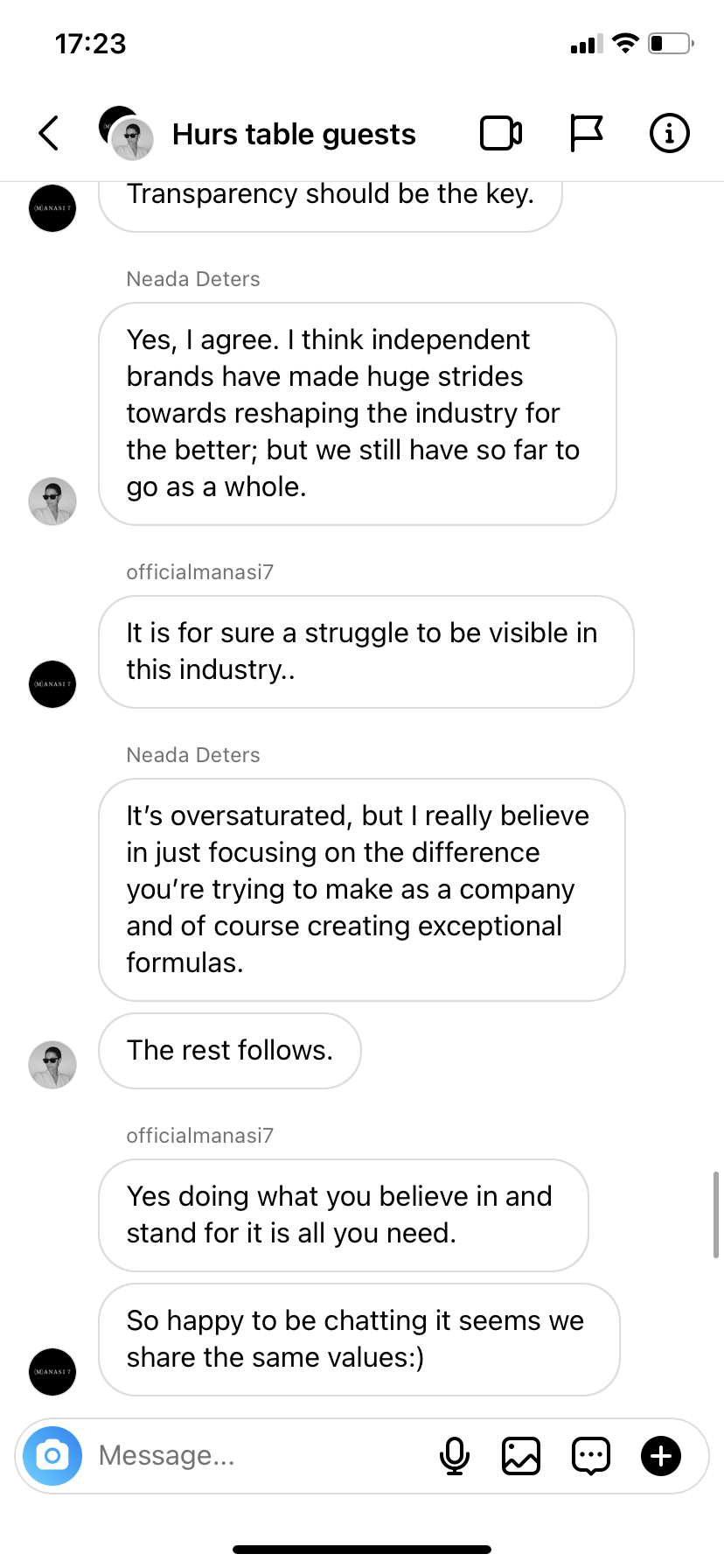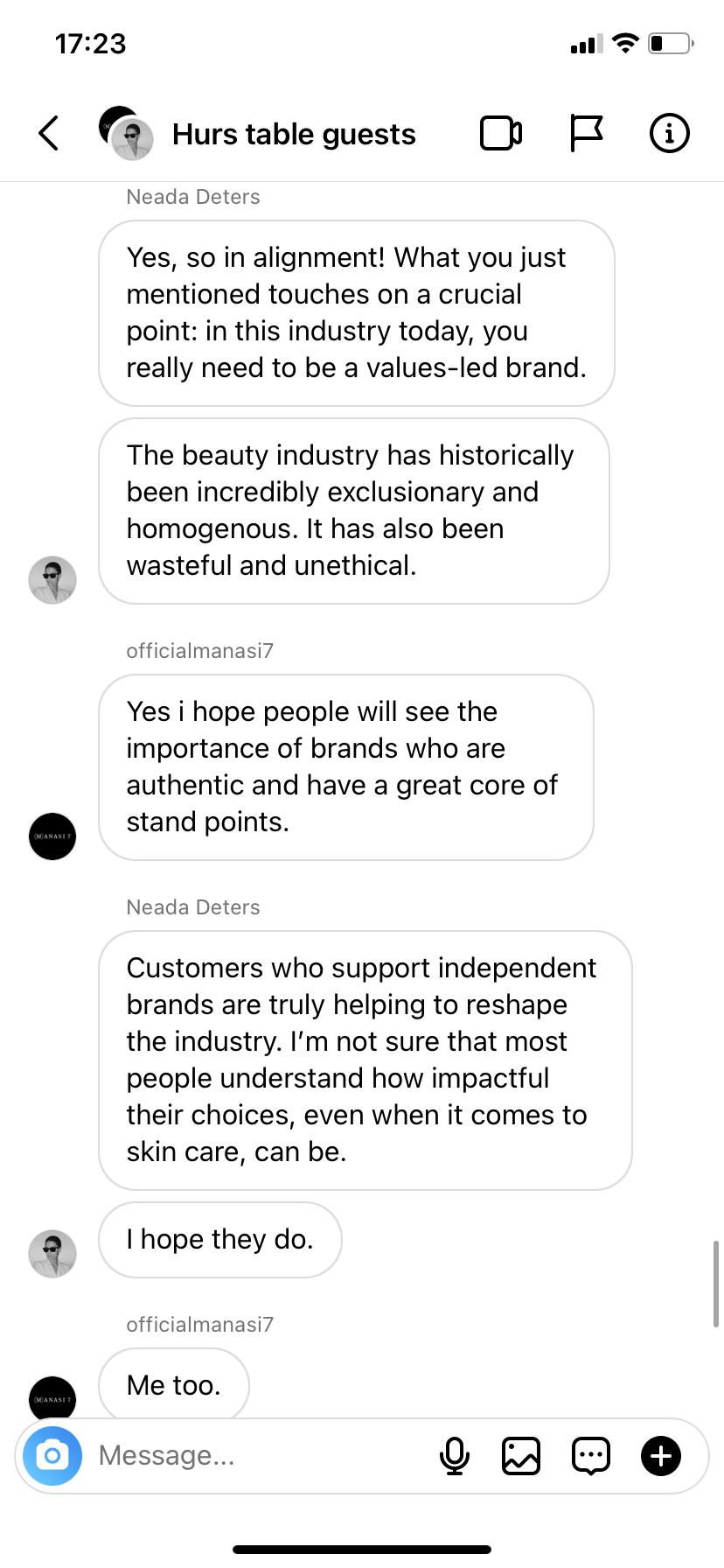Lifting the Curtain on Greenwashing in Beauty
Courtesy of LESSE
Lifting the Curtain on Greenwashing in Beauty
With Susanne Manasi and Neada Deters
By HURS Team
Nearly every new (and old) beauty and skincare brand wants a piece of the clean, organic and natural beauty pie. The market segment is expected to rule the 530 billion-plus dollar beauty and personal care industry. Globally, the natural and organic beauty market is estimated to reach over 50 billion dollars by 2027, starting at only 29.9 billion dollars in 2021. But what do all these terms even mean? Most define ‘clean’ beauty as products that are made without ingredients that can be harmful to your health as well as the earth. The problem is that attaching the term clean, organic or natural beauty to a product doesn’t come with any regulations, resulting in a disparity between what you believe you’re buying into and what beauty and skincare companies are selling. And with terms like vegan, natural, organic and clean all used interchangeably, the beauty space becomes increasingly difficult to navigate for consumers.
But overall, the shift is a positive one. The pandemic changed the collective mindset. Consumers started to question the products and brands they were buying into and how they impacted their health and the environment. Additionally, there was more attention for the inconsistency in regulations around cosmetics in different countries. To give you some context; the European Union has banned around 1300 chemicals in cosmetics, while the US has only restricted 11. It comes as no surprise that consumers want to take matters into their own hands, while governments are playing catch up.
SUSANNE MANASI
Susanne Manasi founded minimalistic Swedish beauty brand Manasi7 in 2018. Starting out as a professional makeup artist, Manasi mixed and customized her own textures and shades during shoots. The conventionally produced beauty products she used in her line of work often contained synthetic chemicals, possibly leaving a negative impact on health and environment. To achieve the highest quality possible for her own beauty brand, Manasi created a manifesto with minimum requirements for the whole production cycle.
NEADA DETERS
Neada Deters is the founder behind organic skincare brand LESSE. Build upon the philosophy that less is more, the brand’s line consists of five essentials that support and elevate skin. All products are made from efficacious and uncompromising ingredients for optimal impact on your skin and minimal impact on the planet. Deters started out at as a beauty editor, and never felt represented by the industry. LESSE is her response and shift away from an archaic industry.
For an insight into the world of clean, organic and natural beauty, we asked two industry insiders about the importance of considering what you put on your skin, the difference between natural and organic and their thoughts on the beauty industry at large.




